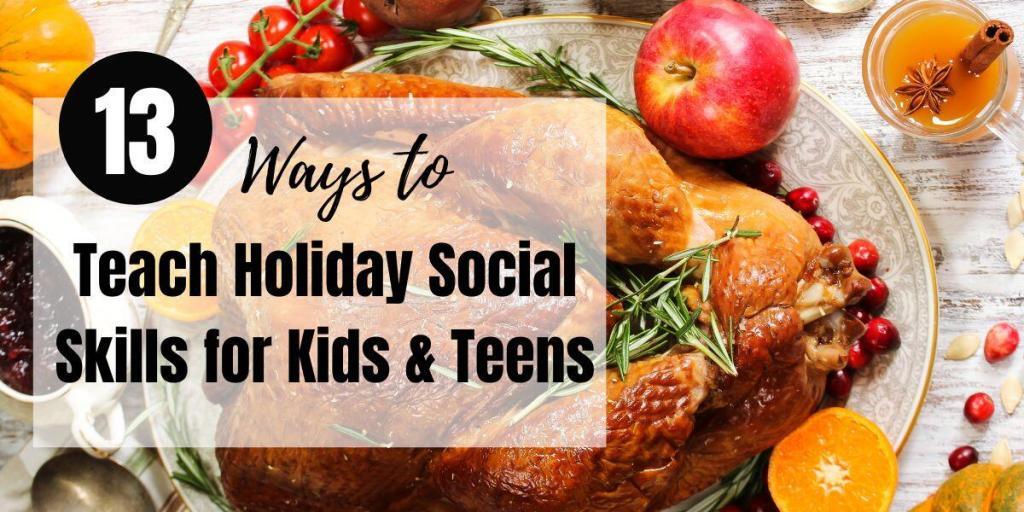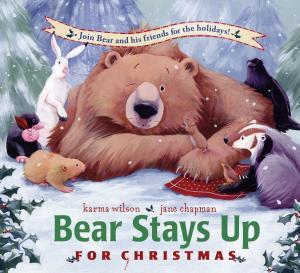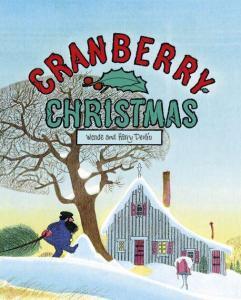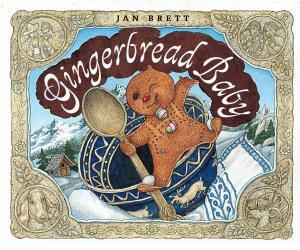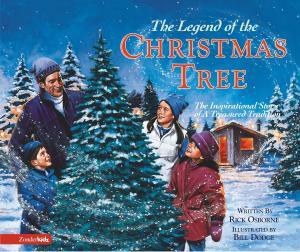Last Updated on November 22, 2023 by Sarah McCubbin
It is so important to teach holiday social skills to kids and teens. Though not something we usually talk about, as parents, we often expect our children to behave and interact a certain way. If you want to have holiday gatherings that are more fun for you, your kids and your guests, there are some things you can do ahead of time and during the holiday season to cultivate gratitude, respect and responsibility.
(If you make purchases made through links in this post may result in a small affiliate commission for me at no cost to you. Thank you!)
As a child who struggled with social skills, the holidays felt very high pressure. I didn’t know how to behave on a good day….let alone when there were 30 extra people in the house. I didn’t know how to engage in small talk. I didn’t know how to depressurize if I felt stressed, or hot or tired. I didn’t know how to handle disappointment when gifts didn’t meet my expectations. I was prone to “exploding” in frustration or breaking down in tears when things weren’t going the right way. I didn’t know how to prepare myself for big gatherings. I didn’t know how to be tactful or gracious. And I know it was difficult for my parents at times when I lost my cool.
25 Thanksgiving Activities for Kids to Teach Social Skills
Over the last 25 years, I have progressively learned that the holidays are a LOT more fun for me if I’m proactive about managing expectations and planning for social situations.
As a parent, you actually have a lot of tools in your belt that you can use to help your kids. Today I’d like to talk about some of the better ones. I’m not a mental health professional…I’m just a mom trying to show up as my best self and teach my kids how to love others well. Below are some general ideas and then more specific ones that have helped me personally and that I use with my own kids.


Here are my best tips to teach holiday social skills for kids and teens.
1. Talk About Your Own Holiday Experiences
I always say that as parents, our own experiences are parenting superpowers. Think back your childhood. What were the holidays like for you. Focus on what you really loved and what was disappointing as well.
- What holiday traditions did you have?
- What did you like or not like?
- What were family gatherings like?
- Did your friends have the same experiences as you?
- What did you wish was different during the holidays?
- What did you love the most?
2. Talk About the Way Media Portrays Holidays vs. the “Normal” Experience
The holiday season is a great time to point out how the media portrays the holidays. Different holidays may have a different emphasis of course. But things you might see in the movies, television, or advertising are:
- People who are always happy
- People who are excited
- People traveling
- Kids who are excited
- Big splurges
3. As you make a note of how the media portrays the holidays, ask good questions.
- Are the holidays really like that for everyone?
- Who are some people that might be alone at the holidays?
- Is everyone excited at the holidays?
- Who might be sad or depressed at the holidays?
I’ve found that asking my kids to be observant helps some things click. They start to pay attention to others more and realize that what they have is much better than they thought. Frequently, they realize that others are struggling more and that helps them be kinder during the holidays.


4. Talk About Why We Celebrate Holidays
I love to talk about why we celebrate different holidays. Each one has a unique history, traditions, and memories. It can help teach social skills to kids when they realize that this holiday is bigger than them. In addition, talking about holidays can give them great things to talk about with others as well.
5. Talk About What You Are Thankful for During that Holiday Season
Before the pressure-filled situations of big groups or big activities, it is helpful to talk about things that you are thankful for. And as part of that list, reflect on the people and circumstances that are particular gifts to you.
-People you are thankful for
Experiences
Simple things (food, shelter, clothing)
6. Develop Traditions That Foster Connection
I love traditions. They help connect people together. They build shared memories. My kids love to go to my uncle’s house for Thanksgiving #2 because he does awesome things every year like hosting a Turkey trot and having a pinata for the kids. I do an Easter egg hunt for my nieces and nephews. My sister and her husband make family T-shirts every year. My kids love to gather around the advent wreath in December.
These are just a few of the many many traditions we have. And these traditions build memories within our immediate and extended family…all of which help kids have something to talk about and feel connected to.
7. Review the names of people at the gathering…write them down if necessary
I have a huge extended family…HUGE. Thanksgiving is often over 100 people even when a 1/3 are missing. So it can be very difficult to remember names. Now, most families are not that large, but it is common for the gatherings to be larger at Christmas, Thanksgiving, or even weddings and graduations.
It helps kids to review the names of the people who will be there and how they are related. My kids always want to know the names of other kids who will be there that are a similar age.
8. Review the order of events for social gatherings
Similarly, if the day of the holiday has a schedule, it helps to review the order of events beforehand. Knowing what comes next can be like ques for people who have trouble figuring out social situations. Our Thanksgiving actually has a schedule. We know when to arrive, when appetizers are served, when the game starts, when dinner is served, and when the turkey trot and pinata are happening.


My kids know we will leave after the pinata to drive home. Because there is a schedule, and they know the schedule, it helps to prevent meltdowns. If they are getting overwhelmed, they can go off and do a quiet activity until its time to go.
9. Practice conversations ahead of time
One of the best ways to teach holiday social skills is simply to practice the different conversations they might have ahead of time. They can practice answering common questions and practice asking questions to people they haven’t seen in a while. Here are a few good questions:
Questions they might be asked…especially if you only see them a couple of times a year.
- How is School?
- Are you playing any sports or doing school activities?
- What are you planning to do when you graduate?
- What did you do this summer?
- Did you have a job this summer?
Here are 85 Conversation Starters Your Kids & Teens Can Use With Others!
100 Funny Questions You Can Ask Kids
10. Talk about what they can do if they feel tired or overwhelmed.
Parents need to teach holiday social skills…and then they need to teach what to do when a child can’t socialize anymore!!
As a child, I remember being at family gatherings and feeling completely overstimulated. Maybe their house was too warm or too small. Maybe it smelled funny or there were too many people. After hours of being around people, I would be sleepy but didn’t have a comfortable place to rest.
Any of these situations or others might feel overwhelming to kids and teens. Oftentimes behaviors come from not knowing how to handle a situation. In order to teach holiday social skills, it is helpful to talk about the situation ahead of time.
Each family has a unique environment and dynamics, so talking to your kids ahead of time about what to expect and what they can do if they are warm, crowded tired etc can help them navigate a gathering more easily.
11. Be Aware of Your Kid’s Limits and Adjust.
As part of teaching holiday social skills, it is important for parents and caregivers to be aware of their kid’s limits. Make a plan ahead of time to talk about the event, talk about the people, and all the other things…but all of this must be balanced with the limits for your kids.
I have found that I don’t take all of my kids to some of my extended family gatherings. We have Thanksgiving #1 is nearby with 40-50 people who are mostly close relatives. Thanksgiving #2 is 100ish people and is about 90 minutes away. It includes a lot of people they don’t see often. Some of my kids LOVE this gathering. Others do not. So about half of my kids go to that one and the others stay home or do other things that day.
I have adopted kids as well as biological children and I’ve realized over the years that that dynamic means some gatherings are life-giving and some just cause stress. Rather than push all the time as I used to, I find that allowing them to attend events that they want to attend and skip some of the others is a good balance for us.
For others, it might mean attending events for shorter periods of time. Maybe it means hosting so your kids can escape to their rooms. Maybe it means letting them bring gaming systems so they can escape even in a crowd. Whatever that is, it’s a worthwhile element to consider to create an environment that is not overly stimulating.
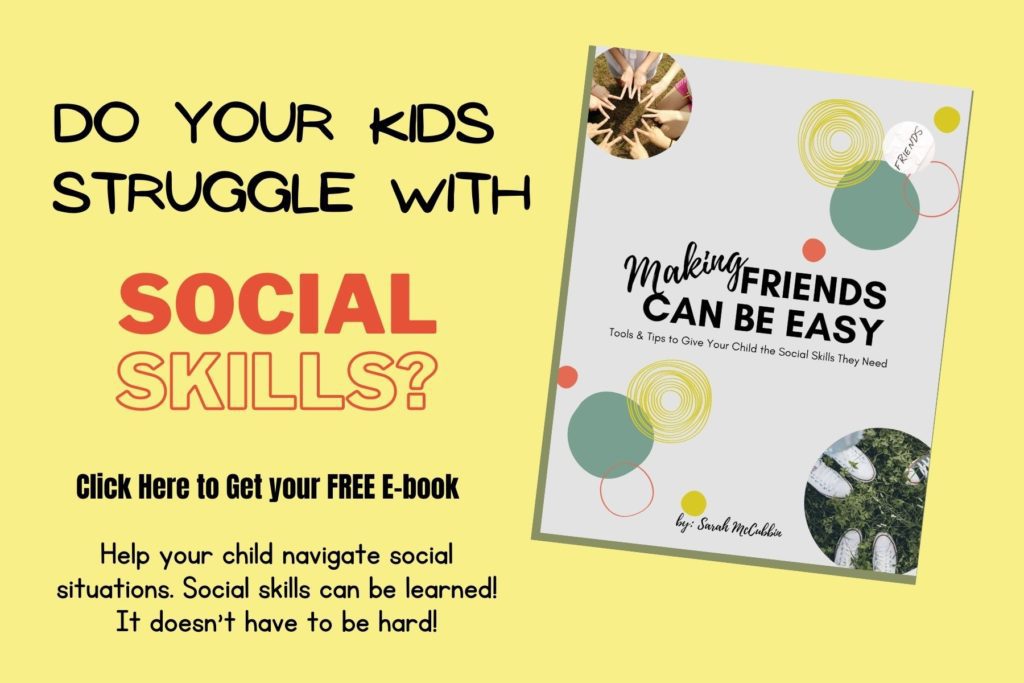

12. Talk to Overbearing Relatives
In every family, there is usually at least one person that has a strong personality or is a little quirky. Kids may not know how to interpret what they say or how they say it. So talking to you kids ahead of time about “Uncle Bob” who always says odd things can be helpful.
It may also be helpful to talk to that overbearing relative. I’ve found that people with strong personalities may not always realize how they are scaring young people. They may not know that their boisterous personality or demanding questions are complex for kids to navigate. If you can manage a pleasant conversation with them ahead of time, it can help to create a better environment for your kids.
If you have overbearing grandparents in your life, you can use these tips to create healthy boundaries!
13. Help Your Kids Practice Gift Giving and Saying Thank You
For holidays where giving gifts is common, helping your kids make or buy gifts can be an excellent way to teach holiday social skills. Here are some of the things they can learn:
They can observe how they feel about themselves when giving gifts.
They can observe other people’s responses to receiving a gift…not everyone responds the same.
They can connect how much effort, time or money goes into giving gifts that they give…and therefore is the same in the ones they receive.
It helps them be more appreciative when others give them gifts.
Teaching them to say thank you for very specific things helps them pay attention to details.
Saying thank you helps them notice all the pieces and parts that make up a whole event or gathering.
Social Skills Are Foundational Blocks That Build Confidence For Everyone
When you teach holiday social skills, it is just one more puzzle piece of helping kids and teens understand the world. Of course, it might be nice if everyone was making the same effort. They are not. But helping our kids learn how to connect with people even when others might have poor social skills can build confidence and help them enjoy being in holiday gatherings.
Looking for more on Social Skills?
10 Social Skills for Kids & Teens Who Want More Friends
100 Funny Questions to Ask Kids
85 Conversation Starters Your Kids & Teens Can Use With Others!

